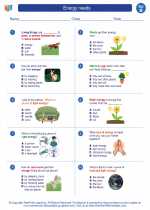Absorption in Science
Absorption is the process by which one substance takes in another substance. In the context of science, absorption refers to the process in which one material soaks up or takes in another material. This process is commonly observed in various scientific fields such as chemistry, biology, and physics.
Types of Absorption:
- Chemical Absorption: In chemistry, chemical absorption refers to the process in which one substance is taken in and retained by another substance through chemical reactions. An example of this is the absorption of carbon dioxide by a chemical solvent in gas scrubbing processes.
- Biological Absorption: In biology, biological absorption refers to the process by which nutrients, water, and other substances are taken in and utilized by living organisms. This is an essential process for the growth and survival of living organisms.
- Physical Absorption: Physical absorption involves the process of one material being taken in or retained by another material through physical forces, such as van der Waals forces or electrostatic interactions. An example of this is the absorption of water by a sponge.
Factors Affecting Absorption:
The rate and extent of absorption can be influenced by various factors, including the surface area of the absorbing material, the concentration gradient between the absorbing material and the substance being absorbed, and the nature of the substances involved.
Applications of Absorption:
Absorption has numerous practical applications in everyday life and in various scientific and industrial processes. Some examples include the absorption of nutrients by plants, the absorption of pollutants by environmental materials, and the absorption of medications in the human body.
Study Guide:
As you study the topic of absorption, consider the following key points:
- Understand the different types of absorption and provide examples for each type.
- Identify and explain the factors that can affect the rate and extent of absorption.
- Explore real-world applications of absorption and how it impacts various scientific and industrial processes.
By mastering the concept of absorption, you will gain a deeper understanding of how substances interact and how this process is essential in many scientific disciplines.
[Absorption] Related Worksheets and Study Guides:
.◂Science Worksheets and Study Guides Second Grade. Energy needs

 Worksheet/Answer key
Worksheet/Answer key
 Worksheet/Answer key
Worksheet/Answer key
 Worksheet/Answer key
Worksheet/Answer key
